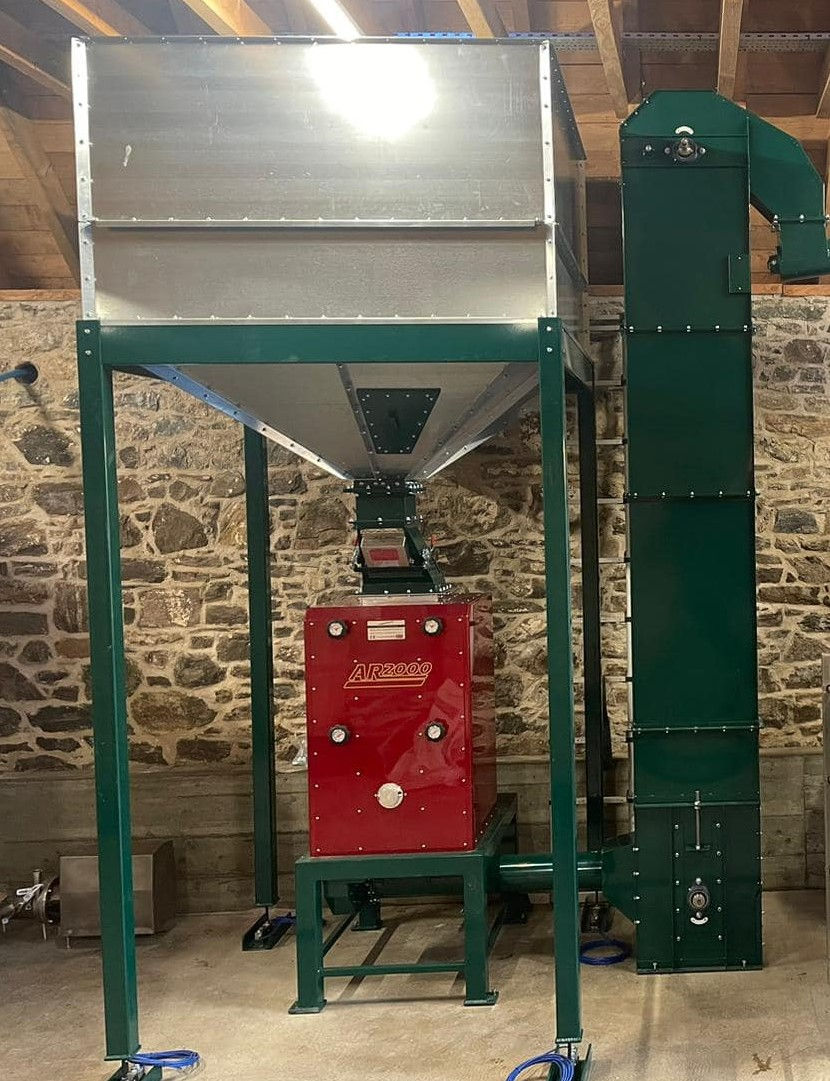BACK TO THE GRIND
- matt16120
- Oct 18, 2023
- 2 min read
Following malting and kilning, our malted barley possesses a crisp toast and is now ready to be transferred over to Dunphail’s main production area. Here it will be transformed once more – into ‘grist’.
Our mill, supplied by Alan Ruddock Engineering takes the now dried malt and steadily grinds the barley into the smaller constituents required for mashing. The mill stores the 1 tonne of malt required for each mash and takes around 1 hour to process a batch.

The mill possess two pairs of adjustable rollers. The first pair cracks open the grains, whilst the second pair crushes the barley into the ideal consistency. The resulting ground grains are called grist. Grist is composed of the barley husks, larger particles called grits and fine flours. The consistency of this separation is vital to achieve the perfect extraction of fermentable sugars during the mashing process. If the grist is too fine, the water will not pick up the sugars – if it is too coarse the water will run through too fast.

We check the consistency of the grist using a ‘shuttle box’. Shuttle boxes contain three layers separated by two sieves – each progressively finer. The grist is placed on the top layer and the box is shaken. The husks become trapped on the top layer, the grits in the middle and the fines on the bottom of the box. Weighing each layer (and calculating its percentage) allows us accurately gauge the proportions – adjusting the mill rollers accordingly to create the perfect ratio.

The levels of husks and flours are essential components to promoting the maximum conversation of starches into sugars. The fines are the easiest for hot water to convert, however their percentage is always low as otherwise the flour would create a sticky mass within the mash tun. Husks promote good drainage of water through the grist, however, they too need to be in balance as larger pieces of husk can cause blockages within the drainage plates at the base of the mash tun.
Once the 1 tonne of malted barley has been milled it is transferred to our mash tun, which is where we’ll be extracting the sugars and flavours that will form the foundation of Dunphail’s whisky profile.



